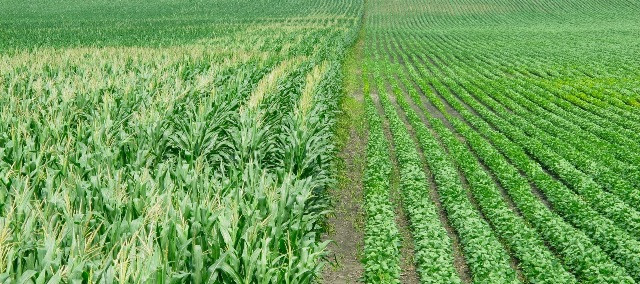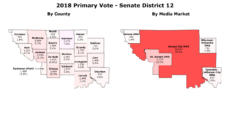Conservation practices adopted by Missouri farmers have yielded big environmental results over the last three decades, according to a new report.
The Climate Change and Missouri Agriculture report, compiled by members of the University of Missouri’s Division of Applied Social Sciences, found farmers’ investments into conservation over the past 30 years yielded more than 2.8 million tons of carbon dioxide equivalent reduction annually. The change roughly equaled the output of 640,000 cars, or 25 percent of the total cars registered in Missouri.
“Stewardship is an integral part of the long-term success for Missouri farms and farm families, and investing in land and water resources is foundational to that success,” Ronnie Russell, president of the Missouri Soybean Association, said. “It’s inspiring to see the impact farmers’ investments have had and continue to have on conserving soil, capturing carbon, and reducing emissions from farm fields. The trajectory we’re on in agriculture, continuously producing more with less, sets us up well to continue to be a leader in the wise use of our natural resources for generations to come.”
In addition to benefiting the environment as a whole, farmland also reaped the benefit of these efforts, the report said. The report found the state’s average soybean yield increased by about 66 percent and implementing no-till and conservation tillage prevented the erosion of 177 million tons of soil.
Contributing changes identified in the brief include improved crop efficiency and yields, more efficient nitrogen management, and various farm practices focused on reducing carbon emission and keeping it in the soil.
The report was requested by the Missouri Soybean Association in 2020 to investigate the impact of these practices. The data was compiled last fall and reviewed by the association’s board of directors in January.
The association is a vocal supporter of green agriculture efforts in Missouri; the group threw its weight behind an attempt to establish a biodiesel fuel minimum in Missouri last year and said it would back the same effort during the 2021 legislative session.

Cameron Gerber studied journalism at Lincoln University. Prior to Lincoln, he earned an associate’s degree from State Fair Community College. Cameron is a native of Eldon, Missouri.
Contact Cameron at cameron@themissouritimes.com.



















